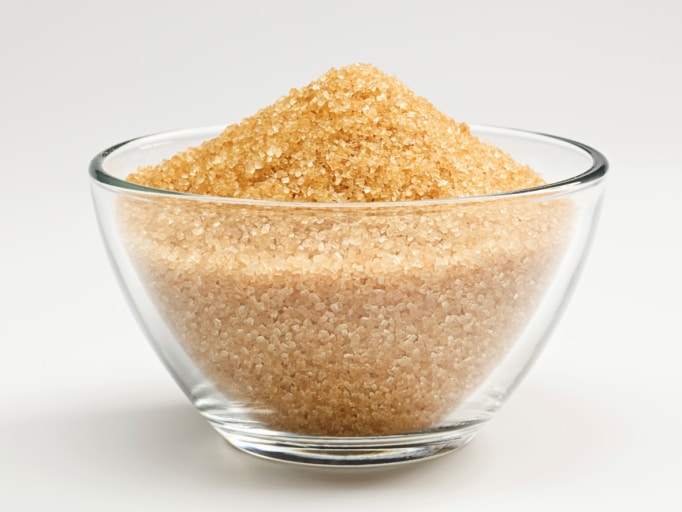Cane Sugar Processing: From Field to Table-- A Step-by-Step Overview
Wiki Article
A Comprehensive Introduction of the Health and Economic Ramifications of Cane Sugar Handling on Neighborhood Areas
Walking cane sugar processing plays a critical function fit the financial landscape of neighborhood areas, providing job opportunity and boosting supplementary sectors. However, the wellness implications associated with high sugar intake can not be neglected, as they add to climbing rates of obesity and diabetes mellitus. This nuanced vibrant welcomes a critical evaluation of how communities can optimize financial gains while resolving journalism wellness difficulties they face. The exploration of educational campaigns and sustainable methods might just hold the key to fixing up these contrasting passions. What strategies might neighborhoods apply to attain this balance?Financial Benefits of Cane Sugar Processing
Walking stick sugar handling supplies substantial economic advantages that prolong past the prompt farming sector. The cultivation and handling of sugarcane create many task possibilities, from farming to manufacturing and circulation. This work generation not just supports local economies but also cultivates neighborhood growth by offering secure revenue resources for households.Moreover, the sugar market boosts secondary services, including transportation, devices supply, and packaging services (Cane Sugar Processing). As these sectors grow, they contribute to an extra robust economic framework, enhancing general community strength. The export potential of refined walking cane sugar even more enhances financial benefits, placing areas as affordable players in international markets
Investment in modern-day handling facilities can bring about boosted performance and efficiency, consequently decreasing waste and maximizing source use. This change not just profits the local economic climate yet likewise sustains sustainability initiatives by reducing ecological effects.
In addition, the earnings created from cane sugar handling can be reinvested in neighborhood facilities, education and learning, and healthcare, advertising all natural area development. On the whole, the economic advantages of walking stick sugar processing are complex, supplying a foundation for withstanding success in farming regions.
Wellness Risks Associated With Sugar Consumption
Excessive sugar usage presents substantial health dangers that necessitate major interest. High intake of added sugars, specifically from processed beverages and foods, has been connected to numerous health difficulties.Additionally, high sugar intake is connected with cardio illness. Raised blood sugar level levels can result in insulin resistance, a forerunner to different heart-related concerns. In addition, sugar can have detrimental effects on dental health and wellness, resulting in tooth cavities and gum tissue condition, as germs in the mouth grow on sugar, creating acids that wear down tooth enamel.
In addition, emerging research suggests a prospective link in between high sugar intake and psychological health and wellness disorders, such as clinical depression and anxiousness. As neighborhoods face these health dangers, it becomes vital to promote understanding and urge healthier nutritional choices. Addressing sugar usage is critical not only for individual health yet also for the total well-being of neighborhood neighborhoods, emphasizing the demand for thorough public health techniques.
Ecological Impacts of Sugar Manufacturing
Regularly overlooked in conversations concerning sugar's ramifications is the substantial environmental effect of sugar manufacturing. The farming of sugarcane commonly requires considerable land usage, resulting in logging, loss of biodiversity, and disturbance of local ecosystems. The conversion of woodlands and marshes right into sugar ranches can result in environment damage, threatening countless types and modifying ecological balance.Moreover, sugar production is resource-intensive, consuming substantial quantities of water for irrigation. This can result in depletion of local water resources, adversely impacting both farming techniques and area access to clean water. Additionally, the use of chemical fertilizers and chemicals in sugarcane farming can add to soil deterioration and water air pollution, as runoff from these chemicals gets in linked here neighboring rivers and lakes, impacting water life and human wellness.
The ecological footprint expands to the handling phase, where energy intake and waste generation further aggravate environmental problems. Air pollution from melting sugarcane fields, in addition to greenhouse gas emissions, contribute to climate adjustment. Because of this, the ecological ramifications of sugar manufacturing warrant severe factor to consider, prompting stakeholders to take on even more sustainable techniques to minimize these negative effects on local communities and neighborhoods.
Job Development and Area Advancement
The ecological difficulties postured by sugar manufacturing are usually counterbalanced by its capacity for economic benefits, specifically in task production and neighborhood growth. The walking stick sugar market works as a substantial resource of work in several country areas, offering tasks throughout different ability degrees, from agricultural labor to processing and circulation duties. This employment not only sustains private family members yet additionally adds to the total economic vitality of regional areas.Additionally, the facility of sugar handling centers promotes ancillary organizations, such as transportation services, tools supply, and maintenance suppliers. As these services flourish, they develop added jobs and reinforce regional economic situations. The profits generated from the sugar market also leads to boosted tax revenues, which can be reinvested into area solutions such as healthcare, facilities, and education growth.
In addition, the sugar industry usually participates in area growth initiatives, such as supporting local schools and health programs, thus improving the lifestyle for homeowners. By fostering strong community ties and advertising economic growth, the cane sugar processing industry plays a vital role in uplifting regional populations, making it a necessary component of sustainable development strategies in sugar-producing areas.
Balancing Wellness and Economic Growth
In navigating the complexities of cane sugar processing, an important challenge depends on balancing wellness considerations with economic growth. The sugar market significantly adds to neighborhood economic climates by creating tasks, stimulating relevant fields, and enhancing tax incomes. However, the health and wellness ramifications related to too much sugar usage can result in chronic diseases such as weight problems, diabetic issues, and cardio problems, which can worry public wellness systems and decrease labor force productivity.
Moreover, governing frameworks can play a critical function in directing market practices navigate here towards more sustainable and health-conscious techniques. By cultivating partnership in between federal government bodies, health and wellness organizations, and the sugar market, areas can navigate the duality of health and financial development, making sure that the advantages of walking stick sugar handling are equitably shared while prioritizing public health.
Verdict
In conclusion, the handling of walking stick sugar provides both significant financial benefits and notable health and wellness dangers for regional neighborhoods. While it cultivates work creation and stimulates local advancement, the associated health and wellness worries, especially pertaining to weight problems and diabetic issues, require a cautious harmonizing act. By promoting accountable usage and investing in neighborhood education and lasting methods, it is possible to optimize economic advantages while lessening unfavorable wellness effects, thereby ensuring a healthier future for regional populations.In addition, sugar can have harmful effects on dental wellness, resulting in dental caries and periodontal illness, as bacteria in the mouth grow on sugar, creating acids that wear down tooth enamel.
Resolving sugar intake is vital not just for specific health and wellness yet also for the total wellness of regional communities, emphasizing the requirement for comprehensive public health and wellness approaches.
Frequently overlooked in discussions regarding sugar's effects is the considerable environmental impact of sugar manufacturing. The health and wellness effects associated with extreme sugar consumption can lead to persistent illness such as weight problems, diabetes mellitus, and cardiovascular issues, which can burden public health systems and diminish workforce productivity.

Report this wiki page